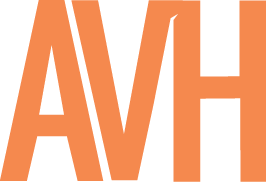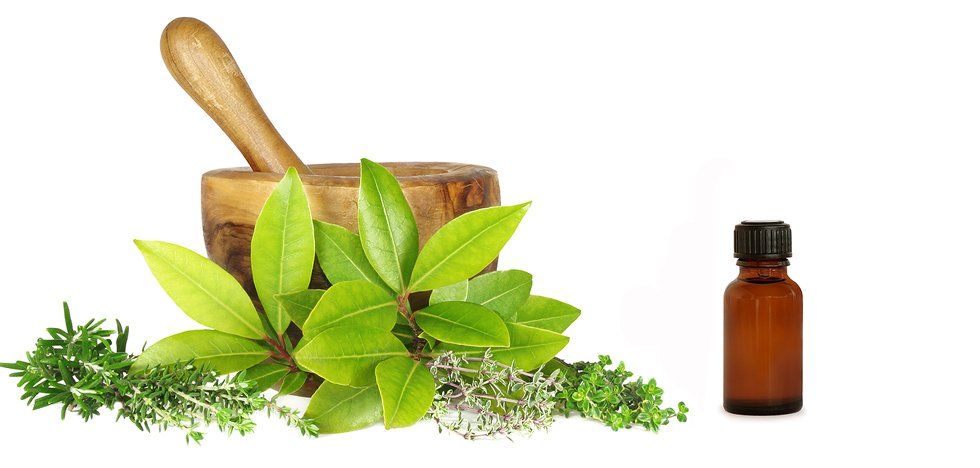NATUROPATHY
WHAT IS NATUROPATHIC MEDICINE?
Naturopathic medicine has a distinct philosophy and practice for the diagnosis, treatment and prevention of disease. Distinguished as a holistic medical practice that relies on detailed information about all aspects of a person’s health, naturopathic medicine views health as an integration of all body systems, and treats the cause of disease rather than the symptoms.
These principles of medical philosophy inspire personalized treatment for each patient, and rely on each person’s active participation in their own health and healing.
While naturopathic medicine is an art in that a patient’s health is crafted through the doctor’s teaching and the patient’s willful healing, it is also a science. Naturopathic medicine relies on scientific and empirical knowledge and continues to reexamine its practice and grow as new information about health and healing is revealed through scientific study.
WHAT IS NATUROPATHIC DOCTOR?
A naturopathic doctor diagnoses and treats conditions and disease using a system of practice grounded in the natural laws governing the human body. These laws connect the body and each organ and system in it, and the naturopathic doctor diagnoses a patient through a detailed examination of family and personal medical history including a patient’s personal experience with health and healing.
Naturopathic doctors may also use clinical diagnostic techniques such as ultrasound, x-rays, lab work, and allergy tests. The naturopathic doctor uses physiological, psychological, and mechanical methods of treatment, ranging from the use of heat, light, air, water and earth, to corrections and manipulations, herbal supplements, and even minor surgery.
Naturopathic medicine stresses the use of non-invasive, natural treatments that do not encumber the body’s natural healing systems and instead promote self-healing. Following this ideology, the naturopathic doctor respects the body’s natural healing systems, and will not prescribe treatment that interferes with these processes. In addition, the naturopathic doctor diagnoses the patient as a whole person, and will customize treatments to each patient’s needs. Once treatment of a condition is complete, the naturopathic doctor works with the patient to maintain optimal health and continue to heal in all stages of life.
WHAT CAN I EXPECT WHEN I VISIT WHEN I VISIT A NATUROPATHIC DOCTOR?
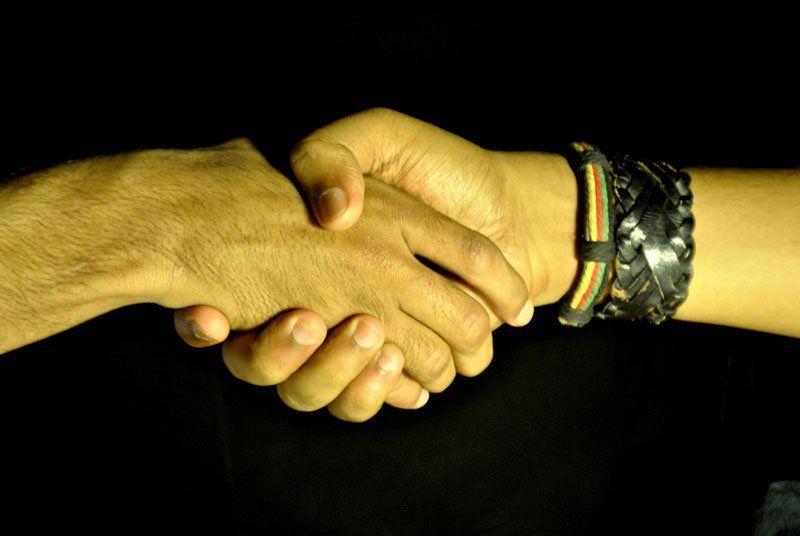
There are several stages to healing the whole person, and extensive knowledge of each patient is required in order to use the right methods of treatment and treat the root cause of disease. First the naturopathic doctor (ND) will take extensive notes on your medical history. Family medical history is also important. The ND is a general practitioner and in accordance will ask questions about the health of all your body systems.
Once the information is recorded, the ND may discuss possible root causes of specific conditions, or treat your general health. If psychological barriers appear to be obstructing physical healing, the ND will treat these first. It is important to remember that a person’s will directly aids or disperses the healing energies of the body, and when psychological and spiritual conditions preclude healing, these must be treated first.
The ND may treat specific conditions in conjunction with this counseling and energetic therapy, or they may wait until the patient is ready for such treatment. As a partner in healing, the patient is always encouraged to ask for emotional, spiritual or physical treatment if they determine that such treatment is preferable.
Another barrier to healing can be energetic patterns in the body that draw energy away from areas that need it, or direct too much energy to areas that don’t need it. The ND is trained to sense these energetic patterns and redirect energy through cranial-sacral therapy, heat and cold, the use of the elements, reflexology and massage, and chakra healing. Sometimes the ND will coach an individual to actively relax certain muscles or areas or to consciously retrain their body for correct posture. As a teacher, the ND has a wealth of knowledge and can answer questions about utilizing energetic corrections for oneself and working to maintain health independently.
Once barriers to healing are eliminated or in the process of remission, the work on physical change can begin. Often the solutions to life-long conditions are as simple as eliminating a food from the diet, getting more, or a specific kind of exercise, or even learning to sleep better. Again, the ND is trained to heal the whole person, and each person’s whole cycle of being. Activity, sleep, what to eat and what not to eat, and even the ability to relax the body and mind are all important factors in a healthy lifestyle.
Natural remedies to chronic conditions are often very effective and easy to obtain, and once a course of action is chosen, the ND works with each person to refine the treatment and move on. Naturopathic medicine is focused on the person, not the symptom, and so elaborate routines and expensive medicines are recognized for what they are – both a treatment and an impact on a person’s life. Working with a naturopathic doctor is much like working with a counselor who wants to find the solution to a problem that will actually stick, that you can actually work with and that will lead to the best results.
CREDENTIALS AND TRAINING
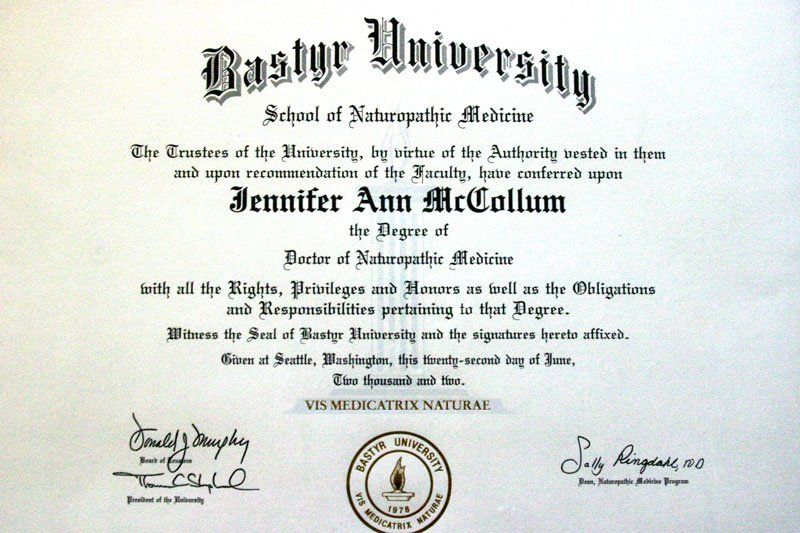
The Doctor of Naturopathic Medicine program is accredited by the Council on Naturopathic Medical Education (CNME), a specialized accrediting agency recognized by th U.S. Department of Education.
For more information, the 2014 CNME Handbook of Accreditation for Naturopathic Medicine Programs is available via download from the CNME website.
HISTORY OF NATUROPATHIC MEDICINE
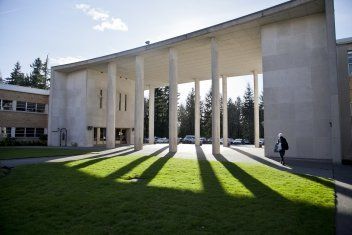
While the medical knowledge utilized by naturopathic doctors (NDs) has grown out of home remedies and ancient medical wisdom that are centuries old, naturopathic medicine as a recognized medical practice was first recognized in the late 1800’s. Unified by the belief that medicine should first do no harm, naturopathic medicine primarily employed non-toxic natural herbs and botanical medicine. This provided an alternative to allopathic medicine, which at the time relied on heroic methods, such as bleeding, and highly toxic cleansing substances that often did more harm than good.
In response to these invasive allopathic practices, practitioners of several medical societies collaborated to create a system of naturopathic medical schools and a network between doctors. By the 1920’s, naturopathic medicine had grown into a society of more than 10,000 practitioners and twenty naturopathic schools. NDs were recognized licensed doctors in most states. However, the advent of pharmaceutical drugs promoted the idea that a quick fix with a wonder drug was better and scientifically superior to herbal remedies or dietary change, because this treatment was both patentable and profitable. Subsequently, naturopathic medicine saw a decline in support.
However, since the 1970’s, ever-increasing medical costs, the reliance on drugs that treat only symptoms, and the promotion of costly and invasive surgery, there is a need for an alternative plan to provide health care to the people. That alternative is found in Naturopathic Doctors and Medical Doctors open to alternative solutions.
In the last few decades, naturopathic medicine has seen a rebound in support and growth, and now boasts four fully accredited schools in the US. For more information on schools, see The American Association for Naturopathic Medical Physicians.
NATUROPATHIC MEDICAL PHILOSOPHY
Naturopathic medicine stems from the philosophy that nature heals, and that the human body is innately able to heal and maintain health with the intelligence and wisdom of nature. The naturopathic doctor (ND) works with patients as a teacher (the root word for doctor) to eliminate blockages to healing and assist the patient on their path towards physical, mental and spiritual health.
Naturopathic medicine utilizes and respects the body’s natural healing systems and provides patients with natural, nontoxic and noninvasive treatment. NDs avoid intrusive procedures, methods and substances that have detrimental side effects, and avoid the harmful suppression of symptoms that is sometimes encouraged in allopathic medicine.
EACH PERSON IS A WHOLE PERSON
A naturopathic doctor views each person as an interconnected whole, where body, mind and spirit interact in every way. Thus, treating a condition involves treating not just symptoms, but the whole person.
For instance, relieving gastro-intestinal pain may involve emotional counseling and acupressure to align the body’s flow of energy, as well as herbs or a dietary change.
ALL MEDICINE HAS INSIGHT
The broadness of the body of naturopathic medical knowledge reflects this attention to each individual as a unique body, mind and soul. Encompassing a wide scope of healing philosophies and practices, naturopathic medicine provides patients with more options for treatment than any other medical discipline. In this way, the ND can concentrate on the right combination of treatments for each person, avoiding the battle between allopathic medicine, Chinese medicine, and other indigenous forms of treatment. NDs cooperate with all other branches of medical treatment and refer patients to specialists when needed.
Sometimes the use of traditional allopathic pharmaceuticals is indicated by either the severity or uniqueness of a patient’s condition, and the naturopathic doctor is well versed in western pharmacology for such an occasion. Be assured, however, that pharmaceuticals are prescribed only after other options are exhausted, or if there is a real emergency for quick medical treatment.
ACHIEVING HEALTH, NOT TREATING SYMPTOMS
Although this point has already been made, it is an important one to remember. A cornerstone of naturopathic medicine is the belief that health can be constructed in a person’s life through the active will of that person. Exercise, a healthy diet, and leading a full, rich life are not only the prescription for health, but the reward. Finding a healthy individualized lifestyle can do more to prevent disease than treating a symptom once it appears.
When a person does become ill, the naturopathic doctor treats the real issue blocking health, and follows a philosophy of recovering a balance in the person’s physical and emotional life. Symptoms of ill-health are not viewed as isolated cases to be treated individually, but instead as indications of an underlying condition. They are the body’s way of communicating that something needs attention. Therefore, the disappearance of the symptoms is never the goal of treatment, but happens as an indication of conditions improving.
METHODS AND PRACTICES
Naturopathic medicine utilizes a variety of methods, or modalities, to diagnose and treat patients.
Although each naturopathic doctor specializes in different fields of knowledge and techniques, several modalities are common to all licensed NDs.
CLINICAL NUTRITION
Clinical nutrition is the practice of finding a healthy diet for each individual, and also the treatment of conditions through dietary changes. For example, asthma, allergies and digestive disorders are often easily eliminated with the proper change in diet. Dietary changes and the addition of supplements can treat conditions efficiently and with fewer complications and risks than any other method.
HOMEOPATHY
Homeopathy has grown as a field of medicine for over 200 years, originating with the work of Dr. Samuel Hahnemann in Meisen, Germany. It is based on the philosophy that like cures like, similar to the founding principle of immunology.
When a person is injected with a vaccination, the body’s natural defenses react and realign the body to counteract the foreign virus. In the same way, when a person shows symptoms of a disease, the agent of the disease can trigger the body’s defenses and treat the disease – the body is only waiting for a sign to fight back and realign its energy and rhythm.
This branch of medical wisdom often relieves patients of conditions that are otherwise difficult to diagnose and treat. For more information on Homeopathy, explore the Homeopathic Educational Services website.
BOTANICAL MEDICINE
Botanical medicine has a long history that draws on the wisdom of indigenous doctors from many cultures. Naturopathic doctors (NDs) are trained in the use of plants as powerful medicine, which are safe and produce fewer side effects than the compounds extracted from them, or synthesized in laboratories.
Botanical treatment has the benefit of natural wisdom, in that many herbs used to treat conditions contain compounds that actively relieve distress and others that keep side effects of ingestion in check. Research around the world is now finding some herbal remedies to be far superior to their synthesized alternatives.
CRANIO-SACRAL THERAPY
Cranio-Sacral Therapy is a technique by which the naturopathic doctor (ND) feels the body’s energy flow and corrects for blockages beginning in the sacrum, and moving up through the body to the cranium. These adjustments can realign structural blockages such as misaligned vertebrae and energetic blockages such as tense muscle patterns and spinal fluid rhythm irregularities.
Although this form of therapy is gentle and slow, its effects can be profound. Simply removing obstacles to the body’s natural cycles can improve the functioning of the immune system, eliminate muscle spasms and chronic pain, relieve allergies and heighten concentration and energy.
POLARITY THERAPY
Polarity Therapy involves energy-based bodywork using electromagnetic patterns known as the Human Energy Field that is expressed in mental, emotional and the physical experience. In Polarity Therapy, therapeutic methods are designed to balance the field for health benefit. Disease or good health is viewed as a reflection of the condition of the energy field.
The Human Energy Field is described in both ancient and modern times. Polarity refers to the universal pulsation of repulsion/attraction or expansion/contraction and is known as Yin and Yang in Oriental traditions. In the Ayurvedic tradition there is Three Principles: Doshas and Five Elements that are kept in balance by the diet, exercise, attitudes, and relationship to our environment.
This knowledge of subtle energy is what was investigated by Randolph Stone, DO, DC, ND (1890-1981). He discovered energy flows smoothly without significant blockage or fixation when it is in a healthy state. When the energy becomes unbalanced, blocked or stuck due to stress or injury then pain and disease arise. Finding the energy blockages and re-establishing energy to normal flow patterns to maintain the Energy Field in an open and flexible condition is what he termed Polarity Therapy.
Drawing information from a wide range of sources, he found that the Human Energy Field is affected by touch, diet, movement, sound, attitudes, relationships, life experience, trauma and environmental factors. Since Polarity Therapy lends an energy-based perspective to all these subjects, the scope of Polarity practice is often very broad, with implications for health professionals in many therapeutic disciplines. As a result, Polarity has strong, mutually supportive connections to many other holistic health systems. For more information visit American Polarity Therapy Association (APTA).
GYNECOLOGY AND NATURAL CHILDBIRTH
Natural childbirth is a fundamental part of naturopathic medicine and is offered by naturopath doctors (ND) with additional training.
The ND uses the most advanced methods of diagnosis during pregnancy and assists the mother and baby with postnatal care as well. In the case of a high risk pregnancy, the ND may refer a patient to other medical specialists.
ORIENTAL MEDICINE
Oriental Medicine includes East Asian medical systems including Japan, Korean and Chinese traditional medicine. Traditional Chinese Medicine is often knows as TCM. The practice of TCM originated in China and developed over several thousand years. These practices include theories, diagnosis and treatments such as herbal medicine, acupuncture and massage. Yoga and often Qigong are strongly associated as a healthful physical activity of TCM.
Traditional Chinese Medicine views the process of the human body as interrelated and in constant interaction with the environment. Therefore signs of disharmony in the external and internal environment of a person are studied in order to understand, treat and prevent illness and disease. TCM is based on several theories including the Theory of Ying-Yang, the Five Elements, the human body Meridian system and Zang Fu twelve organ theory. Diagnosis and treatment are based with reference to these theories to establish where the body needs energy flow and re-balancing.
Korean Medicine developed from the cross culture exchanges of Indian medicine and Chinese medicine and observations from their own country. Therefore it has a uniqueness all its own that uses other theories and systems with some similarities and differences from the TCM methods.
Japanese Traditional medicines were mainly like Chinese and then they became heavily westernized for a while. Now herbal remedies are more highly regarded and they are traditionally called Kampo. Traditional Chinese medicine tends to modify herbal combinations to suit the imbalance, the Japanese Kampo tradition uses fixed combinations of herbs in standardized proportions according to the classical literature of Chinese medicine
AYURVEDIC MEDICINE
Known as the Mother of All Healing, Ayurvedic medicine is over 5,000 years old. It comes from the ancient Vedic culture. Ayurvedic means Science of Life. Out of Ayurveda came the natural healing systems of Polarity Therapy and Homeopathy.
Ayurveda is similar to all natural healing techniques placing emphasis on balancing one’s life with proper thoughts, life style, nutrition and the use of herbs. Balancing is done by taking a questionnaire to determine in which dosha type a person is dominate. The Vedics believed everyone was made from the these five elements. If a person was perfectly balanced they would have equal parts of their three doshas.
Most people are dominant in one, with a secondary dosha, and lacking in the third. Taking certain types of food, herbs and lifestyle changes helps to balance out the over stimulation of one and support the lacking dosha. See The Ayurvedic Institute
for more information.
ALLOPATHIC MEDICINE
Naturopathic doctors are trained with the same basic skills as MDs and can utilize the knowledge of health that continues to grow in the field of allopathic medicine. ND’s are qualified to prescribe allopathic medicine, and will do so within the scope of their practice, or refer patients to MDs for further consultation.
When a more natural solution cannot be found, prescriptions will be selected that cause minimal interference with natural body healing systems. For example, sometimes hormones or antibiotics may be prescribed when needed.
Because the ND is not trained to perform major surgery, if such treatment is required, the ND will refer the patient accordingly.
MENTAL HEALTH AND STRESS MANAGEMENT
Mental and emotional well-being is as important as a physically healthy lifestyle in maintaining overall health and wellness. NDs are trained to council patients and help remove psychological barriers to healing.
This training includes nutritional counseling, stress management, hypnotherapy, biofeedback and many other methods specific to each ND.
MINOR SURGERY
Minor surgery is part of an NDs training and includes the treatment of superficial wounds and removal of foreign objects and cysts. The ND is trained to use local anesthesia when appropriate.
As family practitioners, NDs do not perform major surgery, but can refer patients to surgeons when there is not a less invasive solution.
